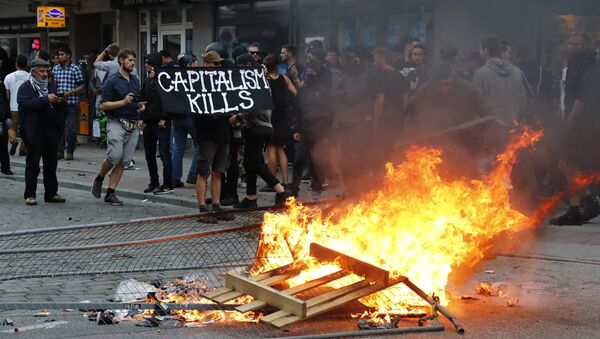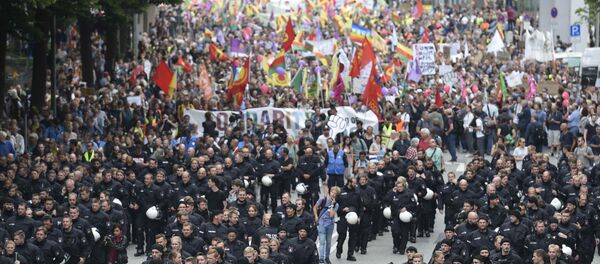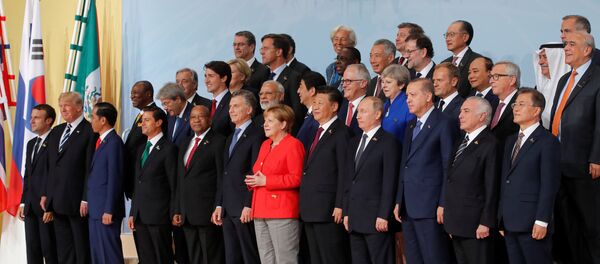The annual G20 meetings are a perfect chance for world leaders to meet each other and to discuss the most pressing issues, both during official negotiations and at informal meetings on the sidelines.
Probably the main intrigue of this year's event was whether US President Donald Trump, who was elected last year, would get along with Russia's leader, Vladimir Putin. Mainstream media issued all sorts of predictions for the Russia-US talks, ranging from forecasting a "macho competition" between the two leaders to assuming they'd be unable to find common ground on Syria, Ukraine and other problematic topics.
Connections and Agreements
Despite the media's skepticism, it appears that Trump and Putin got along quite well and spent more than 135 minutes — quadruple the time scheduled for the sideline meeting — discussing bilateral and international issues, many of which had been unresolved throughout former US President Barack Obama's two terms in the White House.
As a result, the US and Russia struck a deal on reinforcing a ceasefire in Syria, which will start at midday on July 9. The agreement creates de-escalation zones in several Syrian regions, which will be supervised by Russian military police in cooperation with Jordan and the US.
Besides the possible warming in the Russia-US relations, Moscow received another positive signal from Paris. During a sideline meeting in Hamburg, French President Emmanuel Macron told Putin that he welcomes the quality and intensity of the work established after the meeting of the two leaders in Versaille in May, adding that "… now we can move on to a new phase because we both saw that we were doing what we were saying."
Divisions
Most G20 leaders were able to agree on the summit's final statement on climate change policies, with the glaring exception of the US. As a result, the summit's communique mentions the position of G20 leaders, but also includes America's stance on lowering the emissions.
"We take note of the decision of the United States of America to withdraw from the Paris Agreement. The United States of America announced it will immediately cease the implementation of its current nationally determined contribution and affirms its strong commitment to an approach that lowers emissions while supporting economic growth and improving energy security needs."
Resistance
Though the G20 venue was guarded by local police, as well as by officers from Berlin and other places, the security presence didn't save the city from riots.
Protests against the meeting covered a spectrum from peaceful rallies to violent clashes with masked demonstrators, which left several police officers wounded, and many participants arrested.
Police used water cannons, pepper spray and tear gas and deployed armored vehicles to clear the improvised barricades built by protesters in the streets of Hamburg.
— Denis Bolotsky (@BolotskySputnik) July 8, 2017
Several cars, including both luxury vehicles and small family hatchbacks, were set on fire by black-clad youths in the Hamburg suburbs. In another episode, protesters looted a supermarket.
While some groups acted violently, others found a clever way of "trolling" the officers, who were patrolling the streets.
— Denis Bolotsky (@BolotskySputnik) July 8, 2017
Even though mainstream media often portrayed the protesters as anti-globalists, protest demographics and ideological platforms were more diverse than that, and included local shop owners who posted anti-G20 signs in their windows, environmental protection groups, multiculturalists and other activists.
The Group of 20 is an international forum for the world's 20 leading economies. It includes 19 nations and the EU. The 2018 G20 Summit will be held in Buenos Aires, Argentina.




